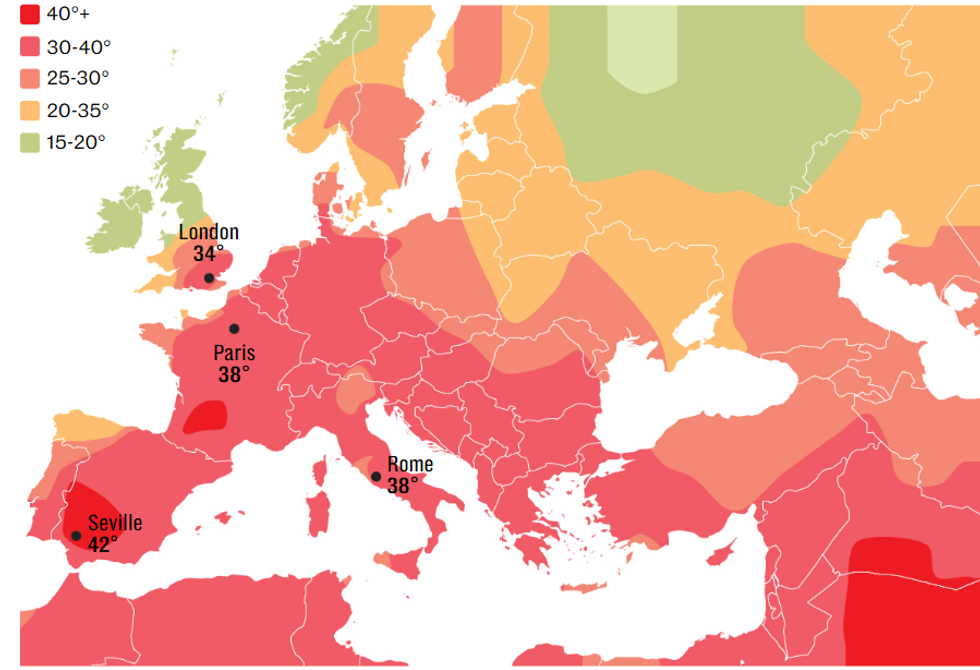THE current divorce system in England and Wales has not changed for more than 50 years.
It currently requires separating couples to prove fault based on specific factual conduct against their partner or otherwise, spend years still married before they can obtain a divorce. This is not ideal as it can exacerbate tensions.
On April 6, this will change. The Divorce, Dissolution and Separation Act will be enabled in a landmark moment, which will bring the law up to date.
Commonly referred to as ‘no-fault’ divorce, the new legislation will cut unnecessary conflict out of the separation process and will allow couples tomove on as amicably as possible while focussing on what really matters.
What is ‘no-fault’ divorce?
The new legislation will remove the possibility of contesting the divorce. It will introduce an option for a joint application (currently only one person can file for divorce).
It will also ensure the language is in plain English – removing complex language such as decree nisi – the first divorce order, which does not officially end the marriage – and decree absolute which is the final order. Importantly, it also removes the five grounds for divorce which are currently: adultery, unreasonable behaviour, desertion, two years’ separation with consent and five years’ separation, with no consent necessary.
Instead, this is being replaced with a statement of irretrievable breakdown plus the wish to be divorced and that will be sufficient. These changes also apply to the dissolution of civil partnerships.

Why is the law being changed?
The law has been criticised in recent years as being out of date because it requires a fault-based ground for divorce. This can make it harder for the divorcing couple to focus on the needs of their children.
It can also prevent couples from divorcing amicably. If either party cannot prove fault, they will have to remain married to their former partner for up to five years. One case which has brought this into focus is Owens v Owens, which involved the divorce of Tini and Hugh Owens, who had been married since 1978.
Tini Owens alleged that the marriage had been broken down irretrievably and told the Family Court and Court of Appeal that she had been “desperately unhappy” in her marriage for many years and that there was “no prospect of reconciliation”.
In 2018, the Supreme Court ruled that Tini Owens could not divorce her husband as she was unable to prove the ground of unreasonable behaviour. The court had to pick over each of the allegations of behaviour in great depth and decide whether as a whole, the behaviour was enough to get over the legal hurdle required to prove the unreasonable behaviour ground required.
Tini remained married until 2020. Only after five years’ separation had elapsed, was she able to divorce her husband without his consent.
The case brought into focus the perceived unfairness on Tini Owens and eventually led to the UK government reforming divorce law.
When will I be able to use it and should I wait to file my divorce until I can use it in my claim?
‘No-fault’ divorce will be able to be used by separating couples from April 7, 2022. It has already been delayed once. If you feel that you would prefer to wait for no-fault divorce to come into effect, there are certain circumstances when this might be appropriate.
For example, if you have one of the five accepted grounds for divorce, but you’ve been told by your partner that your application will be challenged and you will be taken to court. They will no longer be allowed to do this once no-fault divorce comes into effect.
If your partner doesn’t want a divorce and you don’t have the grounds for divorce, the current law means you must wait five years to get a divorce without your partner’s consent.
By waiting for no-fault divorce to come into effect, this could be a faster way of dissolving your marriage. Alternatively, you might want to get on with resolving matters now depending on your own circumstances.
Another matter to consider is that it is likely that divorcing and obtaining a financial order agreement will be quicker under the present system. Under the new system, there is a mandatory waiting period of 20 weeks between the first divorce order and the second, final order.
One thing is clear, we are ready and need this legislation change. Our laws must reflect the society we live in. Introducing a law which removes the blame culture around divorce can only be good for the couples who are considering divorcing, and the children who are part of their families.
www.lawsociety.org.uk/en/topics/family-and-children/no-fault-divorce
www.bbc.co.uk/news/uk-england-hereford-worcester-44949856
Lubna Shuja is the vice-president of the Law Society of England and Wales. She will become the first Asian president in October 2022 and the seventh female president when she takes office.






 June 2025 was England’s warmest June since records began in 1884Met Office
June 2025 was England’s warmest June since records began in 1884Met Office












 Apsana Begum
Apsana Begum